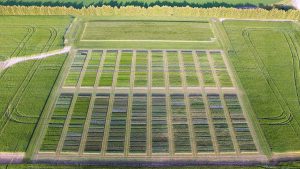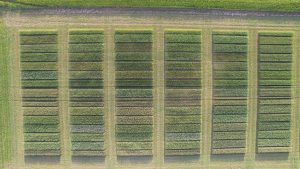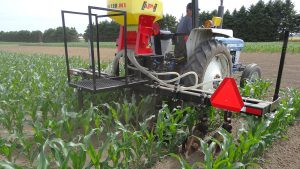Keeping tabs

RECORD KEEPING ON the farm is not just about making life easier for your accountant come income tax season. Whether you are using precision agriculture technologies to capture data, using Excel or another database to keep financial records, or even writing on the back of a napkin, you are keeping records. But in an era of change, formalizing your records is something that will not only provide you with fewer headaches but also improve your farms viability moving forward.
The agriculture industry is within an era of change and farmers are now being asked to explain and prove their on-farm practices. Proving what you have done in the past can be a difficult task if you don’t keep proper and accurate records. There are those who will save up invoices and receipts over the course of the growing season to then bring these to the accountant all at once. This may be the most time efficient way to handle invoices and receipts but doing this may prevent you from accurately understanding your profitability or production costs until after year end.
BEYOND FINANCIALS
When speaking of record keeping, financial records are the first thing that comes to mind. But beyond the financial records of a farm business, keeping records on production practices can provide invaluable information to understand what works on your farm and what does not. Good record keeping is something no longer only suited for farmers in identity preserved (IP) or contract programs. Keeping information on what nutrients you applied, when you applied them, what rate, and how they were placed for any given cropping season will allow you an opportunity to see how effective those practices were.
Combining this information with weather data, soil sampling records, yield history, and your herbicide programs will provide insights when evaluating the overall sustainability of your crop. All of these are essential, as you cannot make decisions without a history of the decisions you have made before. It is important to help learn how effective your past practices were and the analysis of your records will enable accurate recommendations for ensuring future crops are economically viable while being environmentally efficient.
SUSTAINABILITY
Food and drink companies are beginning to demand more from farmers and looking for greater transparency through supply chains. This greater transparency is met by farmers going through programs to verify the practices they do are sustainable.
Grain Farmers of Ontario has been actively working with the Sustainable Agriculture Initiative (SAI) platform’s Farm Sustainability Assessment (FSA) as a way to meet this increased demand for sustainability. The reality is good record keeping will greatly assist a farmer in completing the FSA and other sustainability programs that are required by the supply chain. By keeping accurate and complete records of production, income, employees, and even training will greatly assist farmers in showcasing how they are doing as farm business owners, as it relates to sustainability. Ontario grain farmers are on the forefront of sustainable agricultural practices, but we need to quantify and qualify our management practices through record keeping to prove what we are doing.
Formalizing your records will help all aspects of your farm business, from crop insurance to bank lenders, to your own needs for future crops. There are a number of computer programs for purchase that can help with farm business record keeping but a simple spreadsheet program, such as Excel, can also provide you with the means to effectively keep good farm records.
Through proper and thorough record keeping you can ensure the decisions you made yesterday are taken into account when planning for future crops. Good record keeping will help make better decisions and hopefully increase profitability.
Michael Buttenham is the sustainability and environment coordinator for Grain Farmers of Ontario. •


























